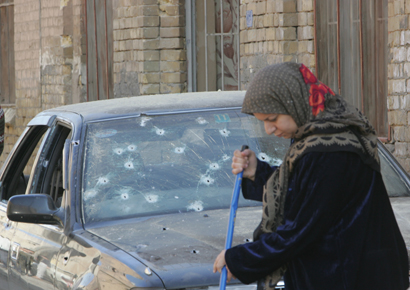Cholera in Irak
The health situation in Iraq is deteriorating on almost every level. In this week's issue, two doctors from Basrah describe how insulin is unavailable because it is not safe to distribute it. Last month the first cases of cholera were reported. And in an interview with the non-governmental organisation Doctors for Iraq, Khaled Mahmud, head of resident doctors in Samarra General Hospital, described how power outages prevented the use of all the medical appliances in the hospital.
The worsening humanitarian situation was recently outlined in a UNAMI report. 54% of Iraqis are now living on less than US$1 a day and almost half of all children are malnourished. Since the coalition invasion in 2003, 12 000 of Iraq's 24 000 doctors have left Iraq. More encouragingly, 3·6 million children have just been immunised against measles, mumps, and rubella and last week UNICEF launched a 6-month action plan, which will address the specific needs of Iraqi children. In addition, the National Center for Drug Control and Research which will analyse the quality of pharmaceutical products imported into Iraq opened last month.
When devising health plans for Iraq it is vital to consider accessibility rather than availability. There is little point in having high quality drugs if it is not safe to distribute them, or new tertiary centres that people cannot access due to restrictive curfews and checkpoints. If Iraqi citizens are to have any hope of a better life, there must be a comprehensive yet realistic strategy—with input from all stakeholders, most importantly the Iraqi people—that adequately addresses the health needs in Iraq. Ignoring what is happening on the ground while planning for the future is a recipe for disaster.
The Lancet 2007; 369:1834
DOI:10.1016/S0140-6736(07)60826-5
Editorial The deteriorating health situation in Iraq

 The last issue of the Lancet, where Irak is also present as a forgotten humanitarian crisis
The last issue of the Lancet, where Irak is also present as a forgotten humanitarian crisis